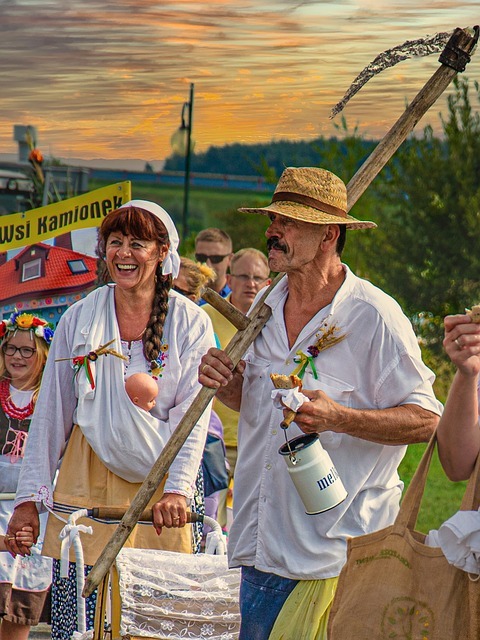Harvest festivals are a time-honored tradition celebrated across cultures, paying homage to nature’s bounty and the hard work of those who cultivate the land. These festivals, rich in history and cultural significance, mark the end of the harvest season and express gratitude for a successful yield. In this article, we delve into the diverse ways different cultures celebrate harvest festivals, exploring their unique customs, rituals, and the shared spirit of thanksgiving that unites them.
The Essence of Harvest Festivals
Harvest festivals hold a special place in the hearts of communities worldwide. These celebrations are rooted in ancient agricultural practices, where the success of the harvest was crucial for survival. Today, they continue to foster a sense of community, gratitude, and respect for the natural world.
Common Elements of Harvest Festivals
- Thanksgiving and Gratitude: At the core of all harvest festivals is the expression of gratitude for the abundance of crops. Communities come together to thank their deities, the earth, and one another for a successful harvest.
- Feasting and Sharing: Food plays a central role in harvest festivals. Elaborate feasts featuring freshly harvested produce are prepared, and the community shares in the abundance, often inviting guests and providing for the less fortunate.
- Music and Dance: Traditional music and dance are integral to harvest celebrations, providing a joyful and communal atmosphere. These performances often reflect the cultural heritage of the community.
- Rituals and Customs: Each culture has its own set of rituals and customs that have been passed down through generations. These may include offerings, prayers, processions, and symbolic acts to honor the harvest.
Notable Harvest Festivals Around the World
Thanksgiving – United States and Canada
Thanksgiving is one of the most well-known harvest festivals, celebrated primarily in the United States and Canada. It originated as a way to give thanks for the autumn harvest and has since become a national holiday marked by feasting, family gatherings, and expressions of gratitude.
Customs and Traditions:
- Feast: The Thanksgiving meal typically includes turkey, stuffing, cranberry sauce, and pumpkin pie, symbolizing the abundance of the harvest.
- Parades: Many cities host Thanksgiving parades featuring floats, balloons, and performances.
- Giving Thanks: Families and friends gather to share what they are thankful for, reinforcing the festival’s original purpose.
Pongal – India
Pongal is a four-day harvest festival celebrated in the southern Indian state of Tamil Nadu. It coincides with the Tamil month of Thai and honors the sun god, Surya, for a bountiful harvest.
Customs and Traditions:
- Cooking Pongal: A special dish made of rice, milk, and jaggery called “Pongal” is cooked and offered to the gods.
- Kolam: Intricate designs made with rice flour are drawn at the entrance of homes to welcome prosperity.
- Cattle Worship: Cows and bulls, essential to the agricultural process, are decorated and honored on the third day, known as Mattu Pongal.
Mid-Autumn Festival – China
The Mid-Autumn Festival, also known as the Moon Festival, is celebrated in China and other East Asian countries. It is a time to celebrate the harvest and the full moon, symbolizing reunion and harmony.
Customs and Traditions:
- Mooncakes: Traditional pastries called mooncakes, filled with sweet or savory fillings, are exchanged and enjoyed.
- Lanterns: Lanterns are lit and displayed, and families often participate in lantern processions.
- Moon Gazing: Families gather to admire the full moon, appreciating its beauty and significance.
The Cultural Significance of Harvest Festivals
Harvest festivals serve as a reminder of the deep connection between humans and the natural world. They highlight the importance of sustainable agriculture, the cycles of nature, and the interdependence of communities.
Preserving Cultural Heritage
These festivals play a crucial role in preserving cultural heritage. They provide an opportunity for younger generations to learn about traditional practices, values, and the significance of agriculture in their culture.
Strengthening Community Bonds
Harvest festivals foster a sense of community and solidarity. They bring people together to celebrate, share, and support one another, reinforcing social bonds and mutual respect.
Promoting Gratitude and Sustainability
By celebrating the harvest, communities express gratitude for the earth’s resources and the labor of those who work the land. This gratitude encourages a sustainable approach to agriculture and a greater appreciation for the environment.
Tips for Experiencing Harvest Festivals
- Respect Local Traditions: When participating in a harvest festival, take the time to learn about and respect local customs and traditions. This shows appreciation for the culture and enhances your experience.
- Engage with the Community: Join in the celebrations, whether it’s through dancing, feasting, or participating in rituals. Engaging with the community allows you to fully immerse yourself in the festival.
- Document Your Experience: Capture the moments through photos or journaling. These memories will serve as a reminder of the unique cultural experience and the beauty of human traditions.
- Share the Spirit of Gratitude: Take the opportunity to express your own gratitude for the abundance in your life. Harvest festivals are a time to reflect on and appreciate the gifts of nature and community.
Harvest festivals around the world offer a rich tapestry of cultural expressions, each celebrating the bounty of the earth in its unique way. From the grand feasts of Thanksgiving in North America to the vibrant rituals of Pongal in India, these festivals highlight the universal human connection to the land and the cycles of nature. By honoring these traditions, we not only preserve our cultural heritage but also deepen our appreciation for the natural world and the communities we belong to.


